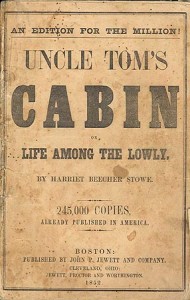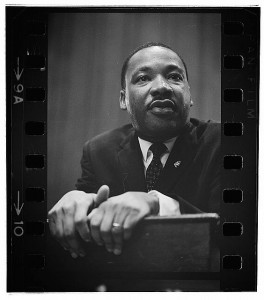We continually discuss the power of story in this blog. Periodically I will share examples of powerful and compelling stories.
One such story is the famous and important novel Uncle Tom’s Cabin . Written in 1852 by Harriet Beecher Stowe, the story impacted millions of readers in its day and made a profound impact on the history of America and, it can be argued, the world.
. Written in 1852 by Harriet Beecher Stowe, the story impacted millions of readers in its day and made a profound impact on the history of America and, it can be argued, the world.
A story did that. A fictional story at that.

Stowe’s Masterpiece
Though I had heard of Uncle Tom’s Cabin for decades, I had never read the book. I still have not actually read it, but thanks to the magic of audiobooks I have now heard the story (see note following this post regarding audiobooks). The fact that the story can be read or heard audibly and still move the reader or hearer regardless, is a testament to the power of this narrative.
So for about a week my typical radio chatter of sports, news, and politics was replaced by a tale of some Kentucky slaves escaping their owners, others being sold “down river” by their masters, and of yet others being brutally treated by men of evil character. My evening walks were adventures in the history of our nation at one of its darkest and most painful moments. A 158 year-old story spoke deeply to my soul and moved me.
Revisiting a previous theme, we have to ask if the story is really fictional? Stowe was criticized in many circles as having written a propaganda piece. So strong was the criticism that she ended with a chapter defending the truthfulness of her account. Though the book was fictional in characters and specific circumstances, it was decidedly non-fiction in spirit in that it depicted things that really were happening. If her opponents could dismiss her book as merely a figment of her imagination or as propaganda, they could somewhat blunt its force. Their efforts failed.
So strong was the impact of Stowe’s narrative that when President Abraham Lincoln met her it is rumored that he said: “So, you’re the little lady that started this great war.” That quote is disputed and may not have actually been spoken by Lincoln, but the impact of her book was real. On March 8, 1853 the famous escaped slave, writer, and statesman Frederick Douglass wrote a letter to Stowe:
I desire to express, dear Madam, my deep sense of the value of the services which you have already rendered my afflicted and persecuted people, by the publication of your inimitable book on the subject of slavery. That contribution to our bleeding cause, alone, involves us in a debt of gratitude which cannot be measured; and your resolution to make other exertions on our behalf excites in me emotions and sentiments, which I scarcely need try to give forth in words. Suffice it to say, that I believe you to have the blessings of your enslaved countrymen and countrywomen; and the still higher reward which comes to the soul in the smiles of our merciful Heavenly father, whose ear is ever open to the cries of the oppressed.
Of the book, Douglass said:
Its effect was amazing, instantaneous and universal.
One last point about this story. The fact that I am writing about the story is not the same as hearing the story itself. There was great craft in the creation of Stowe’s narrative, and there was great skill in the telling. There is no substitute for the story itself. When you write your own personal Forward Story, you have to develop the skill to write a narrative worth living.
Oh yeah, and no one can write it for you.
Note on Audiobooks. There are many great sources for audiobooks in different formats and media. I recently downloaded the iPhone application by Librivox entitled “Audiobooks Free”. Librivox produces audio versions of books that are in the public domain. This means some of the greatest works of literature are now available to us free thanks to Librivox. It is their version of Uncle Tom’s Cabin that was narrated by John Greenman that I enjoyed. I just wanted to put in a plug for this great effort. You do not have to have an iPhone to enjoy Librivox. You can download audio files directly from their website at http://librivox.org/


